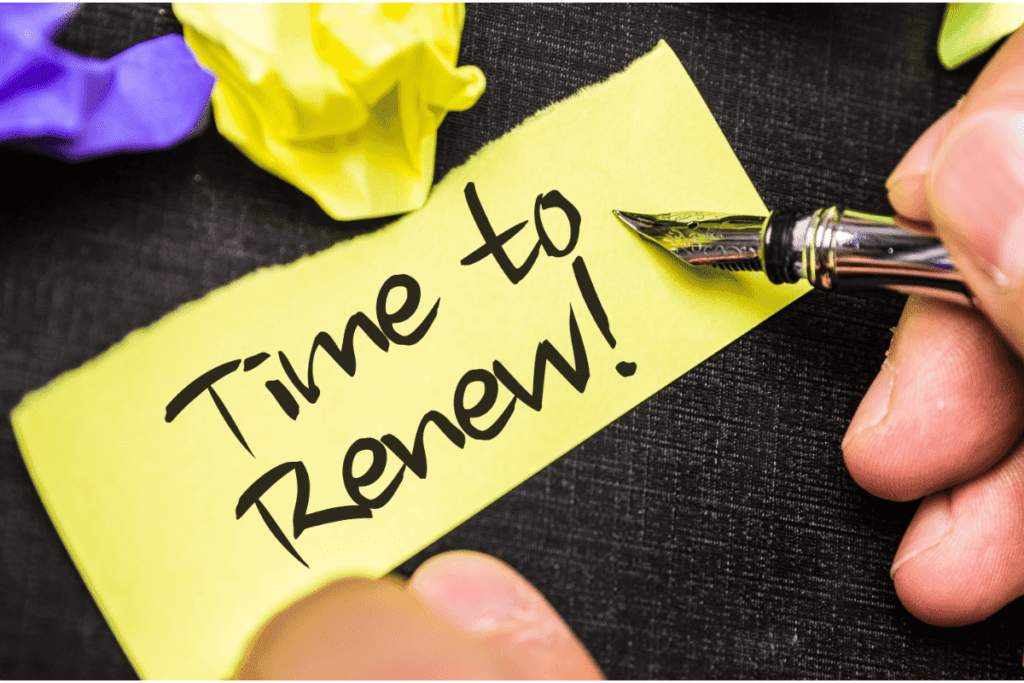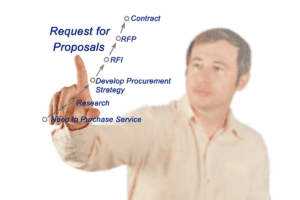Mastering the Art of Contract Renewals: Best Practices for Vendor Contract Renewal
Contracts are an integral part of any business relationship, and contract renewals play a crucial role in ensuring the continuation of these partnerships. Effective contract renewal practices can lead to substantial cost savings, improved vendor management, and enhanced business outcomes. In this article, we will explore the top best practices for vendor contract renewal and delve into the tools and techniques that can streamline the process.
What value you can expect to get from reading this article
By the end of this article, you will gain a comprehensive understanding of contract renewals and learn the best practices to maximize value and mitigate risks. You will also discover valuable tools and techniques that can simplify the contract renewal process and enable efficient vendor management. Whether you are a Project Manager, business owner, or procurement professional, this article will equip you with the knowledge you need to excel in contract renewals.
What are the Top 7 Contract Renewal Best Practices?
Understand the Contract Renewal Process:
It is crucial to have a thorough understanding of the contract lifecycle and the steps involved in the contract renewal process. From contract review to negotiation and renewal discussions, each phase requires careful attention to detail. By familiarizing yourself with the process, you can proactively address potential pitfalls and optimize your approach to contract renewals.
Collaborative Roles of Contract Managers and Business Owners:
Effective communication and collaboration between contract managers and business owners are paramount in achieving successful contract renewals. Contract managers provide expertise in managing contract renewals, while business owners offer insights into the contract’s performance and requirements. By working together, these stakeholders can develop a holistic and strategic approach to contract renewals.
Leverage Contract Terms:
Contract terms provide an opportunity for businesses to extract additional value during the renewal process. Reviewing the existing contract terms can help identify potential areas for renegotiation or improvement. By leveraging contract terms, businesses can ensure that the renewed contract aligns with their evolving needs and goals.
Utilize Contract Management Software:
Contract management software, such as contract renewal reminder software or contract management systems, can greatly simplify the contract renewal process. These tools enable efficient monitoring of contract dates, automated renewal alerts, and contract data tracking. By leveraging technology, businesses can streamline their contract management workflows and reduce manual errors.
Differentiate Between Renewal and Renegotiation:
It is important to distinguish between contract renewal and renegotiation. Renewal refers to the continuation of the existing contract terms, while renegotiation involves making changes to the contract. Understanding this distinction allows businesses to allocate resources appropriately and ensures a smoother contract renewal process.
Embrace Contract Lifecycle Management (CLM) Software:
Contract lifecycle management software offers a comprehensive solution for managing contracts throughout their entire lifecycle. These tools facilitate contract review, analysis, and tracking, ensuring that no renewal dates are missed and contractual obligations are met. CLM software also provides valuable insights into contract performance and aids in risk management.
Capitalize on Contract Renewal Opportunities:
The contract renewal phase presents an opportunity for businesses to evaluate and optimize their vendor agreements. By conducting a thorough contract review and analysis, businesses can identify areas of improvement, address issues from the previous contract, and implement changes that align with their strategic objectives. Contract renewal discussions should be seen as a chance to enhance the value derived from the vendor relationship.
 What is the Vendor Contract Renewal Process Overview?
What is the Vendor Contract Renewal Process Overview?
Contract lifecycle – brief overview
The contract lifecycle comprises various stages, starting from contract initiation to contract renewal or termination. It involves drafting the agreement, negotiating the terms, executing the contract, and managing its performance. Each stage of the contract lifecycle requires careful attention to detail and effective contract management practices.
Contract Managers and Business Owners’ Collaborative Roles
There is a shared collaboration between Contract managers and business owners in contract renewals. Given their expertise in managing contract renewals, Contract Managers ensure smooth and efficient processes. On the other hand, business owners provide insights into vendor performance and requirements, enabling data-driven decisions during contract renewals. A collaborative approach enhances the chances of successful contract renewals and strengthens the vendor partnership.
Contract renewal process – Tips and Pitfalls to watch for
The contract renewal process involves several steps, and it is essential to be aware of potential pitfalls. Many contracts have specific notice periods before the contract renewal date, and failing to provide timely notice can lead to unintended contract termination. Understanding these critical timelines and ensuring compliance is essential. Additionally, inefficient communication, lack of documentation, and inadequate contract review can also hinder a smooth contract renewal process.
Contract terms – How to leverage and potential for renegotiation
Reviewing and understanding contract terms is crucial during the contract renewal phase. Existing contract terms offer an opportunity to leverage favorable conditions, such as volume discounts or extended payment terms. Businesses can also identify areas for renegotiation, such as outdated clauses or unfavorable pricing structures. By leveraging contract terms effectively, businesses can align the renewed contract with their evolving needs and negotiate better outcomes.
What are Some Tools, Tips, and Contract Terminology?
Tracking contract dates and Key Clauses
Tracking contract dates, such as renewal dates and notice periods, is essential to avoid contract lapses or termination. Contract management software provides automated alerts and reminders for critical dates, ensuring timely action. Additionally, identifying key clauses, such as termination or renewal clauses, allows for effective contract management and informed decision-making during the renewal process.
Contract terminology
Understanding the terminology used in contracts is vital for effective contract renewal. Familiarity with common contractual terms enables clear communication between parties and ensures accurate interpretation of the agreement. It also facilitates efficient contract review and analysis, saving time and minimizing potential misunderstandings.
Renewal vs Renegotiation
Differentiating between renewal and renegotiation is essential for a well-structured contract renewal process. Renewal refers to the extension of existing contract terms. However, when you renegotiate your current contract, it involves making changes to the contract terms. By understanding the distinction, businesses can allocate resources effectively and approach the renewal process with clarity and purpose.
CLM software
Contract Lifecycle Management (CLM) software streamlines contract management processes and provides a centralized platform for managing contract renewals. CLM software offers features such as a contract repository, automated workflows, electronic signature capabilities, and contract performance analytics. By leveraging CLM software, businesses can enhance their contract renewal efficiency and gain valuable insights into contract performance.
How Do You Formulate an Effective Contract Renewal Strategy?
Contract review and analysis
An effective contract renewal strategy involves a thorough review and analysis of the existing contract. This process includes evaluating the contract’s performance, identifying areas for improvement, addressing issues from the previous contract, and aligning the contract with current business objectives. Contract review and analysis serve as a foundation for informed decision-making during the contract renewal process.
QBR Results and Inputs for Contract Renewals
QBR (Quarterly Business Review) results offer critical insights that guide the contract renewal process. Conducted every quarter, these reviews ensure there are no surprises at the end of the contract term. They provide an ongoing record of performance, ensuring historical accuracy and reducing reliance on potentially flawed end-term recollections.
By grounding renewal decisions in tangible, consistent QBR data, businesses ensure transparency and make well-informed choices. In essence, regular QBRs are instrumental in shaping an effective contract renewal strategy, offering a continuous pulse check on vendor performance.
Contract performance and KPI Analysis
Evaluating contract performance and key performance indicators (KPIs) is crucial in formulating an effective contract renewal strategy. Analyzing performance metrics enables businesses to identify areas of success and areas that require improvements. By measuring KPIs related to vendor performance, cost savings, and service quality, businesses can make data-driven decisions and negotiate favorable contract terms.
Workflow and approval processes
An efficient workflow and approval process are essential for a seamless contract renewal process. Establishing clear roles, responsibilities, and approval hierarchies ensures that each stakeholder understands their obligations and deadlines. Implementing automated workflow systems can streamline the approval process, expedite contract renewal timelines, and reduce administrative burdens.
Opportunities during Contract Renewal
Contract renewals present opportunities beyond continuation. They offer a chance to improve vendor relationships, negotiate better terms, and adapt to changing business needs. By approaching contract renewals strategically, businesses can foster long-term partnerships, drive cost savings, and optimize vendor performance.
Conclusion
In conclusion, mastering the art of contract renewals is crucial for effective vendor contract management. By following the best practices outlined in this article and utilizing the right tools and techniques, businesses can streamline the contract renewal process and maximize the value derived from vendor partnerships.
Contract renewals provide an opportunity for businesses to optimize existing contracts, improve performance, and align with strategic objectives. It is essential to approach contract renewals proactively, leverage contract terms, and embrace technological solutions for successful and efficient contract management.
If you liked this article, remember to subscribe to MiamiCloud.com. Connect. Learn. Innovate.







